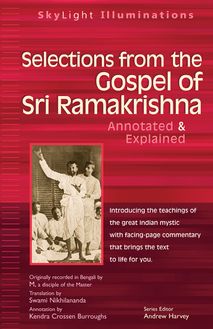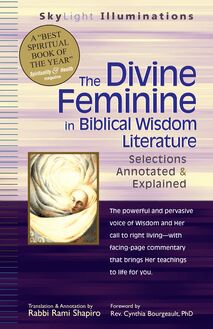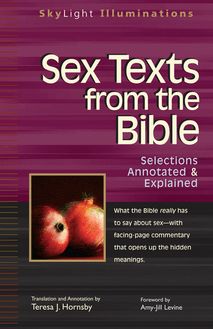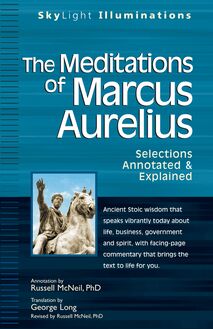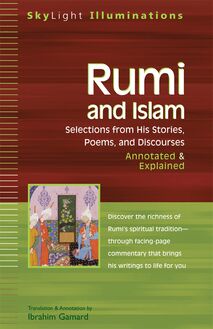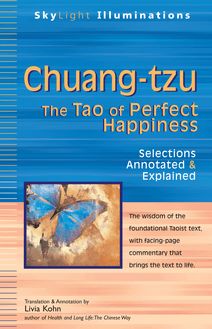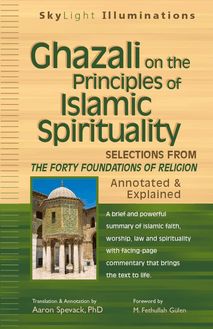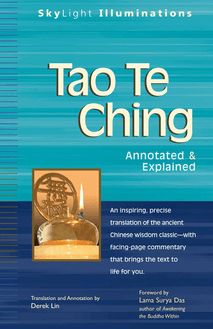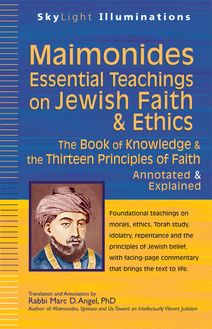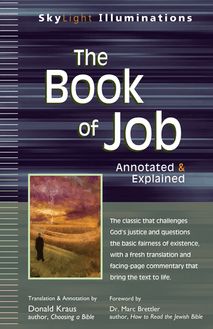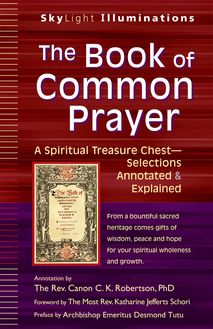Confucius, the Analects , livre ebook
87
pages
English
Ebooks
2011
Vous pourrez modifier la taille du texte de cet ouvrage
Obtenez un accès à la bibliothèque pour le consulter en ligne En savoir plus
Découvre YouScribe et accède à tout notre catalogue !
Découvre YouScribe et accède à tout notre catalogue !
87
pages
English
Ebooks
2011
Vous pourrez modifier la taille du texte de cet ouvrage
Obtenez un accès à la bibliothèque pour le consulter en ligne En savoir plus
Publié par
Date de parution
01 avril 2011
Nombre de lectures
2
EAN13
9781594733291
Langue
English
The wisdom of Confucius, China's greatest teacher and sage, can guide each of us in our own time.
Twenty-six centuries after their origination, the principles laid down in the Analects of Confucius still act as the foundation of Chinese philosophy, ethics, society and government, and play a formative role in the development of many Eastern philosophies. In this intriguing look at the ethical and spiritual meaning of the Analects, Rodney L. Taylor, the foremost American researcher of Confucius as a religious and spiritual figure, explains their profound and universal wisdom for our own time. He shows how Confucius advocates learning and self-cultivation to follow the "path of the sage" or “Way of Heaven”—a journey that promises to promote reason, peace and understanding.
Alongside an updated version of the classic translation by Sinologist James Legge, Taylor provides informative and accessible commentary that illuminates the meaning behind selected passages from the Analects and their insights on character development, respect and reverence, and the nature of learning, goodness, truthfulness and righteousness.
Introduction ix
1. Opening the Analects: The Pursuit of Learning 1
2. Confucius' Humanity 5
3. The Noble Person 21
4. On Filial Piety 49
5. Ritual and Music 59
6. The Nature of Learning 69
7. Truthfulness and Righteousness 81
8. The Teaching of Goodness 89
9. The Single Thread 105
10. Reflections on Tradition 111
11. The Way of Heaven 119
12. Closing the Analects: Learning for the Self 133
Acknowledgments 137
Notes 139
Suggestions for Further Reading 141
Index of Passages 143
Publié par
Date de parution
01 avril 2011
EAN13
9781594733291
Langue
English
Books in the SkyLight Illuminations Series
The Art of War-Spirituality for Conflict: Annotated & Explained
Bhagavad Gita: Annotated & Explained
The Book of Mormon: Selections Annotated & Explained
Celtic Christian Spirituality: Essential Writings-Annotated & Explained
Chuang-tzu: The Tao of Perfect Happiness-Selections Annotated & Explained
Dhammapada: Annotated & Explained
The Divine Feminine in Biblical Wisdom Literature: Selections Annotated & Explained
Ecclesiastes: Annotated & Explained
The End of Days: Essential Selections from Apocalyptic Texts-Annotated & Explained
Ethics of the Sages: Pirke Avot-Annotated & Explained
Ghazali on the Principles of Islamic Spirituality: Selections from Forty Foundations of Religion-Annotated & Explained
Gnostic Writings on the Soul: Annotated & Explained
The Gospel of Philip: Annotated & Explained
The Gospel of Thomas: Annotated & Explained
Hasidic Tales: Annotated & Explained
The Hebrew Prophets: Selections Annotated & Explained
The Hidden Gospel of Matthew: Annotated & Explained
The Infancy Gospels of Jesus: Apocryphal Tales from the Childhoods of Mary and Jesus-Annotated & Explained
The Lost Sayings of Jesus: Teachings from Ancient Christian, Jewish, Gnostic, and Islamic Sources-Annotated & Explained
The Meditations of Marcus Aurelius: Selections Annotated & Explained
Native American Stories of the Sacred: Annotated & Explained
Philokalia: The Eastern Christian Spiritual Texts-Annotated & Explained
The Qur an and Sayings of Prophet Muhammad: Selections Annotated & Explained
Rumi and Islam: Selections from His Stories, Poems, and Discourses-Annotated & Explained
The Sacred Writings of Paul: Selections Annotated & Explained
Saint Augustine of Hippo: Selections from Confessions and Other Essential Writings-Annotated & Explained
St. Ignatius Loyola-The Spiritual Writings: Selections Annotated & Explained
The Secret Book of John: The Gnostic Gospel-Annotated & Explained
Selections from the Gospel of Sri Ramakrishna: Annotated & Explained
Sex Texts from the Bible: Selections Annotated & Explained
Spiritual Writings on Mary: Annotated & Explained
Tanya, the Masterpiece of Hasidic Wisdom: Selections Annotated & Explained
Tao Te Ching: Annotated & Explained
The Way of a Pilgrim: The Jesus Prayer Journey-Annotated & Explained
Zohar: Annotated & Explained
When a parent dies, the child buries the parent in the earth. When a child dies, the parent buries the child in their heart.
K orean proverb
To the memory of our daughter Meghan (1978-2003)
Confucius, the Analects: The Path of the Sage-Selections Annotated & Explained
2011 Quality Paperback Edition, First Printing Introduction, revised translation, and annotations 2011 by Rodney L. Taylor
All rights reserved. No part of this book may be reproduced or transmitted in any form or by any means, electronic or mechanical, including photocopying, recording, or by any information storage and retrieval system, without permission in writing from the publisher.
For information regarding permission to reprint material from this book, please mail or fax your request in writing to SkyLight Paths Publishing, Permissions Department, at the address / fax number listed below, or e-mail your request to permissions@skylightpaths.com.
Library of Congress Cataloging-in-Publication Data Confucius. [Lun yü. English. Selections] Confucius, the analects : the path of the sage : selections annotated & explained / annotation by Rodney L. Taylor ; translation by James Legge ; revised by Rodney L. Taylor. - Quality paperback ed. p. cm. - (Skylight illuminations series) Includes bibliographical references. ISBN 978-1-59473-306-2 (quality pbk.) 1. Confucius. Lun yu. I. Taylor, Rodney Leon, 1944- II. Legge, James, 1815-1897. III. Title. IV. Title: Path of the sage. PL2478.L37 2011 181'.112-dc22 2011000886
10 9 8 7 6 5 4 3 2 1
Cover Design: Walter C. Bumford III, Stockton, Massachusetts Cover Art: Confucius Temple, Shanghai, China TMAX #3554187 / fotolia.com Manufactured in the United States of America
SkyLight Paths Publishing is creating a place where people of different spiritual traditions come together for challenge and inspiration, a place where we can help each other understand the mystery that lies at the heart of our existence.
SkyLight Paths sees both believers and seekers as a community that increasingly transcends traditional boundaries of religion and denomination-people wanting to learn from each other, walking together, finding the way ®.
SkyLight Paths, Walking Together, Finding the Way and colophon are trademarks of LongHill Partners, Inc., registered in the U.S. Patent and Trademark Office.
Walking Together, Finding the Way ® Published by SkyLight Paths Publishing A Division of LongHill Partners, Inc. Sunset Farm Offices, Route 4, P.O. Box 237 Woodstock, VT 05091 Tel: (802) 457-4000 Fax: (802) 457-4004 www.skylightpaths.com
Contents
Introduction
1. Opening the Analects : The Pursuit of Learning
2. Confucius Humanity
3. The Noble Person
4. On Filial Piety
5. Ritual and Music
6. The Nature of Learning
7. Truthfulness and Righteousness
8. The Teaching of Goodness
9. The Single Thread
10. Reflections on Tradition
11. The Way of Heaven
12. Closing the Analects : Learning for the Self
Acknowledgments
Notes
Suggestions for Further Reading
About SkyLight Paths
Copyright
Introduction
A Living Tradition
A number of years ago, as a young scholar, I studied in Kyoto, Japan. My field of research then as now was Confucianism. As my time in Japan unfolded, I was engaged in translating a work of Okada Takehiko, a professor at Kyushu University and a great scholar of Confucianism, from Japanese. I wrote to him to ask for clarification of certain sections of his work, and he invited me and my wife to come visit him in Fukuoka, far from Kyoto on the southern island of Kyushu.
My first meeting with Okada Takehiko was remarkable, as were the subsequent years of interaction between us. He had come to the train station to meet us. As we rode together in the taxi to our hotel he turned to me and said that he believed the world was in profound moral decline and then asked me what we could do about it! This was not an abstract scholarly question, but a plea from a heart and mind that felt the disarray of the contemporary world caught without a moral rudder to bring it back on course.
Through our relationship, I came to understand that Confucianism is not a historical relic of a philosophical value system, but a living tradition of great religious and spiritual depth. The teaching of Confucianism can be summarized, as Okada explained to me, by suggesting that we must turn to live with the moral goodness inherent within us, just as the universe itself embodies goodness, and through that goodness we come to realize ourselves, our relation with our families, our society, our world, and the universe itself. As Okada would say, we simply need to realize the basic premise of Confucius teaching, his teaching of goodness, which is found in the text known as the Analects , the record of the sayings of Confucius. This teaching has played a central role in the life and cultures of East and Southeast Asia for the past twenty-five hundred years.
Confucius: The Man and the Message
Who is this man Confucius, and what is this work called the Analects , that twenty-five hundred years later people are still discussing his ideas, attempting to emulate his teachings, and suggesting that those teachings are as relevant today as they were in his own time? What can we derive from reading these words of an ancient Chinese thinker in our own lives and our own time? Can these teachings change the way we look at ourselves, at our world, at the aspirations and goals of our lives? Can these teachings bring peace and understanding to each person and to the world, as Confucius himself hoped? Can we find an answer to who we are and the nature of the quest that occupies each of our lives?
Confucius speaks in remarkably simple words and a gentle tone, yet the meaning of his teachings can occupy a lifetime of learning. As his own disciples said of him, his depth and his wisdom know no bounds. Trying to penetrate them, you find that they are only deeper and always beyond full grasp ( Analects IX:10). However many steps are taken, his own depth of understanding lies always ahead ( Analects XIX:23). Throughout East and Southeast Asia his words have provided a foundation for defining our ultimate nature-the moral nature that is central to our being and to the universe itself. His message moves the individual toward that realization of goodness, what we can refer to as the path of the sage.
Confucius Life of Learning
Confucius (551-479 BCE) was born in the state of Lu, a small state now part of Shantung province. His personal name was K ung Ch iu, a son in the K ung family. The family appears to have descended from a noble family but was impoverished by the time of Confucius birth. His father is said to have died when Confucius was very young and his mother died when he was sixteen. Virtually nothing is known about his childhood, though he apparently married when he was eighteen. His own autobiographical statement in the Analects asserts that he began his learning at fifteen ( Analects II:4), though we have no details about either the context or the content of this learning. What we do know is that his reputation for learning and teaching appears to have grown rapidly and with it he eventually came to be called K ung Tzu, Master K ung, or K ung Fu Tzu, Great Master K ung, the latter Latinized by the Jesuits centuries later into the name we all recognize, Confucius.
Confucius is considered to have been a member of a class of people known as ju , which became the standard term for Confucianism with its rise to prominence following Confucius death. The term itself actually means weak
